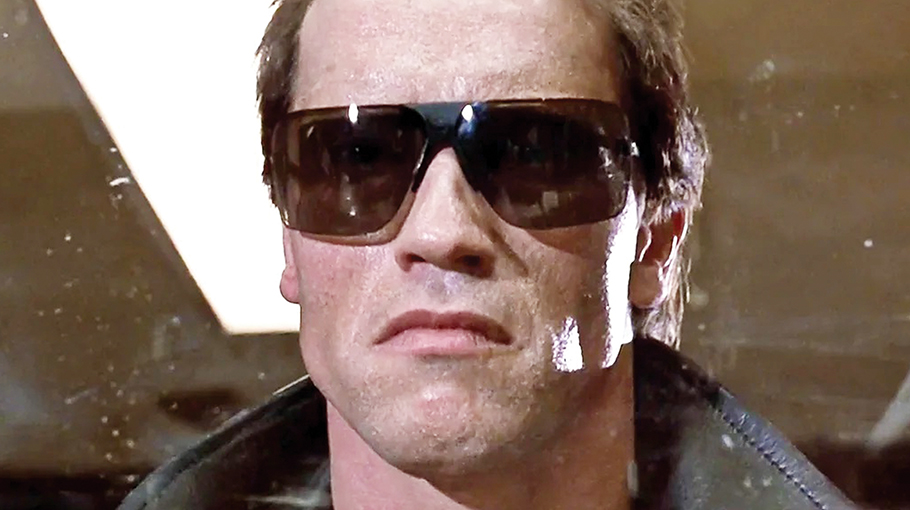How 1984’s The Terminator predicted our AI fears

Starring Arnold Schwarzenegger, the 1984 blockbuster The Terminator has become synonymous with the dangers of superintelligent machines. But it "helps and hinders" our understanding of AI.
In one episode of the HBO sitcom Silicon Valley, Thomas Middleditch (Richard Hendricks) is explaining his machine-learning platform Pied Piper to a focus group when one participant inevitably compares it to James Cameron's 1984 film The Terminator. "No, no, no," insists the exasperated Middleditch. "I can assure you that there is no Skynet type of situation here. No, Pied Piper will in no way become sentient and try to take over the world." Too late. He's lost the room.
With its killer robots and its rogue AI system, Skynet, The Terminator has become synonymous with the spectre of a machine intelligence that turns against its human creators. Picture editors routinely illustrate articles about AI with the chrome death's head of the film's T-800 "hunter-killer" robot. The roboticist Ronald Arkin used clips from the film in a cautionary 2013 talk called How NOT to build a Terminator.
But the film is a mixed blessing. The philosopher Nick Bostrom, whose 2014 book Superintelligence popularised the existential risk of "unaligned AI" (AI that is not aligned with human values and wellbeing) admitted that his wife "teases me about the Terminator and the robot army". In his book The Road to Conscious Machines, AI researcher Michael Woolridge frames an entire chapter with a complaint about "the Terminator narrative of AI".
There are more recent, and more plausible, influential films about AI, including Ex Machina and Her, but when it comes to the dangers of the technology, The Terminator reigns supreme 40 years after its release. "It's almost, in a funny way, more germane now than it was when it came out," Cameron told The Ringer about the film and its 1991 sequel, "because AI is now a real thing that we have to deal with, and then it was a fantasy."
'Anti-gun and anti-machine'
This is quite an achievement for a film that is not, in fact, particularly interested in AI. First and foremost, it is a lean and lurid thriller about an unstoppable "man" chasing a scared but resourceful woman. The T-800 is an implacable killer in the vein of Michael Myers from Halloween. Cameron called it "a science-fiction slasher film". Secondarily, it is a time-travel film on the theme of "fate vs will", as Cameron put it.
The briskly sketched premise is that at some point between 1984 and 2029, the US entrusted its entire defence system to Skynet. One day, Skynet achieved superintelligence – a mind of its own – and initiated a global nuclear war. Humanity's survivors then waged a decades-long rebellion against Skynet's robot army.
By 2029, the human resistance is on the verge of victory thanks to the leadership of one John Connor, so Skynet dispatches a T-800 (Arnold Schwarzenegger) to 1984 to kill John's mother-to-be Sarah (Linda Hamilton) before she becomes pregnant. The resistance responds by sending back Kyle Reese (Michael Biehn) to stop the T-800 and save Sarah. In one of those time-loop paradoxes that viewers should not examine too closely, Kyle hooks up with Sarah and turns out to be John's father. The future is saved.
The Terminator, then, is a thriller, a love story, a time-hopping rumination on free will and a satire about our dependence on technology. It is anti-corporate, anti-war, anti-gun and largely anti-machine. Technology, from answering machines to Walkmans, is involved when people get killed in this film. But it has very little to say about AI itself.




